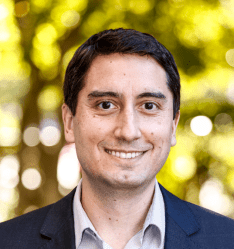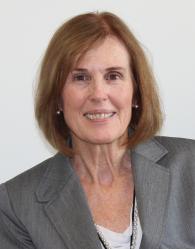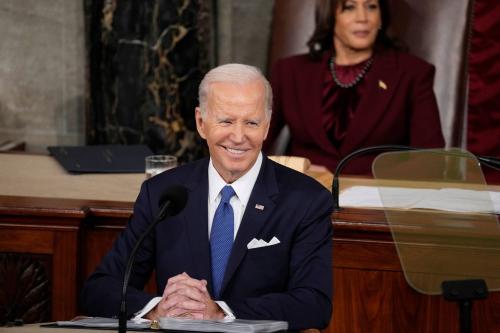

10:00 am EDT - 11:00 am EDT
Past Event
The first months and years of life lay the foundation for a child’s future. It’s a time of rapid brain development, when children’s experiences shape their readiness for school and what comes later. Parents and guardians are uniquely placed to provide the types of nurturing, stimulating experiences that build socioemotional skills and executive functioning. Yet, many American parents find themselves stressed and overburdened at this critical time in their children’s lives.
On May 3, the Brown Center on Education Policy at Brookings hosted an event that delved into how parents can support their children and how policymakers can support parents during the crucial first years of children’s development.
Jon Valant, director of the Brown Center on Education Policy, moderated a panel of experts that discussed the neuroscience of early child development, what parents can do to facilitate that development, and how stakeholders might mobilize to create more parent-friendly policies that benefit children, parents, and American society.
To frame the discussion, Valant invited Dr. Dana Suskind, the founder and co-director of the TMW Center for Early Learning and Public Health at the University of Chicago and a practicing pediatric surgeon, to discuss her new book, “Parent Nation: Unlocking Every Child’s Potential, Fulfilling Society’s Promise.”
Suskind explained that she sees a “parent nation” as a society that “cherishes and, importantly, supports the love and often invisible labor that goes into nurturing, raising, and educating future generations.” She stressed that all people involved in a child’s early years—including child-care providers—contribute to the “love and input” needed for a healthy development.
Suskind also described what goes on in a child’s brain in the first three years of life—a time when “85% of the physical brain is being built.” She described the inputs for healthy brain development, including nurturing interactions, rich talk, and protection from toxic stress. Suskind advises that parents and other caregivers keep the “three Ts” in mind for their interactions: tune in, talk more, and take turns.
But, she emphasized, simply knowing how to interact with children often isn’t enough. She highlighted that, though her work, “it became so clear that the larger realities of a family’s circumstance—their work constraints, economic stressors, bad luck, or injustices they are subject to—matter as much as those three Ts for building healthy brain development.” Suskind closed the first part of the conversation by evoking one of the main themes of her book: that she hopes to see parents and others come together to advocate for the supports that young children and their caregivers need during those first few years.
The other panelists then joined the conversation.
Dr. Moira Szilagyi, a professor of pediatrics at UCLA’s Mattel Children’s Hospital who specializes in childhood trauma and resilience, echoed Suskind’s argument and called for paid family leave to give parents time to provide the inputs their young children need. She said, “The sheer absence of [paid family leave] across the country in comparison to most other industrialized countries in the world is shameful.” Szilagyi noted that the pandemic and recent social and economic challenges have made matters more challenging for many parents.
Natalie Vega-O’Neil, the incoming president of the National Association for the Education of Young Children, elaborated on COVID-19’s impacts, focusing on the U.S. child-care system. She argued that the pandemic demonstrated the “mismatch between supply and demand” in child care due to severe funding shortcomings. She also highlighted Suskind’s book as “a call to action when it comes to business and how businesses [can] provide more family-friendly environments for those working moms and dads.”
Bill Novelli, founder of the Georgetown Business for Impact Center, focused on employers’ roles as well. He explained that “employee health and well-being is a competitive advantage” and emphasized that it’s hard to recruit and retain talented people. Supporting employees with young children, in his view, is necessary for companies to thrive.
The conversation then turned to what it means, and what it might look like, to build a coalition in support of young children and their caretakers. Valant noted the challenge that these groups may not have the political power of, say, older Americans. Novelli, who previously engaged in coalition-building as CEO of AARP, argued for building a broad group of support. He suggested that early childhood groups work with organizations such as AARP and reminded the panel that “older people really care about their kids and their grandkids.” Vega-O’Neil and Szilagyi flagged the education and health-care sectors, respectively, as natural allies in this work.
The panel then discussed discrete changes to policy or practice that could benefit young children. Vega-O’Neil called for educators to be compensated like the professionals they are, with higher salaries and access to health insurance and retirement benefits. She called, too, for funding programs based on enrollment, not attendance, to make revenue streams more predictable. The panel also discussed debt-free college for early educators and codifying professional standards across states. Suskind reiterated the importance of paid family and medical leave. She and Szilagyi pointed to child tax credits as well, with Szilagyi noting that parents have used that credit to “pay off debt, buy healthier food, [and] to invest in their child’s care.”
Suskin closed the conversation with a look to the future: “My greatest hope is that we start elevating the importance of parents and caregivers in the desire to see all children thrive in this country—and that we find a way to bring our voices together.”
Moderator

Panelist

Moderator

Panelist




Katharine Meyer, Rachel M. Perera, Michael Hansen
April 9, 2024

Dominique J. Baker
April 9, 2024

William A. Galston, Jon Valant, Chinasa T. Okolo, E.J. Dionne, Jr., Bill Baer
March 6, 2024